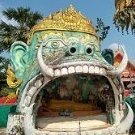Torture, rape, killings: An Indian state's brutal conflict
-
Recently Browsing 0 members
- No registered users viewing this page.
-
Topics
-
Popular Contributors
-
Latest posts...
-
45
Electric scooters / bike
Mine will easily do 45 kph, and get some strange looks on the rare occasions I do pass people. Although I do tend to keep it around 25 or 30 kph, if not slower through town. Avoiding as much attention as possible, since illegal as all hell. 1000w motor easily puts it in the (unregistered, uninsured) motorcycle classification.🙄 -
20
To make America Great Again from within ,Patel & Bongino head FBI
Sitting here reading and enjoying the banter. Keep going. https://tse2.mm.bing.net/th?q=Man+Sitting+On+Sofa+Eating+Popcorn&w=120&h=120&c=1&rs=1&qlt=90&cb=1&pid=InlineBlock&mkt=en-WW&cc=TH&setlang=en&adlt=strict&t=1&mw=247 -
42
Thaksin Apologises for Tak Bai Tragedy, Downplays Narathiwat Car Bombing
The seven sisters would be ideal. -
62
Israelis in Thailand Urged to Uphold Respectful Conduct
They were behaving poorly... -
21
Help needed moving from Phuket to Hua Hin
The partial load did reduce the price but I was also concerned about arriving ahead of the delivery truck. Him doing other deliveries along the way resolved that issue for me. Hope you find something that works well for you. -
48
-
-
Popular in The Pub
.png.3b3332cc2256ad0edbc2fe9404feeef0.png.8488ab72b8bb2e508209bfe3211b6e08.png)


.thumb.jpeg.d2d19a66404642fd9ff62d6262fd153e.jpeg)





Recommended Posts
Create an account or sign in to comment
You need to be a member in order to leave a comment
Create an account
Sign up for a new account in our community. It's easy!
Register a new accountSign in
Already have an account? Sign in here.
Sign In Now